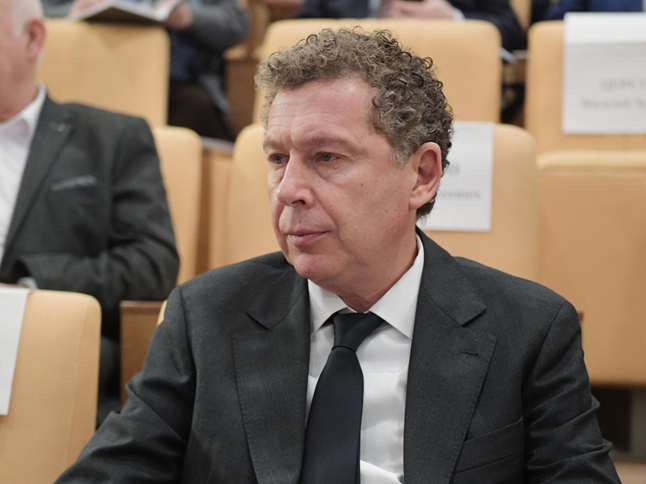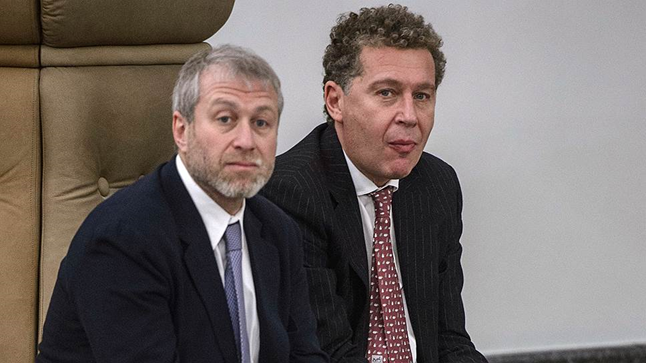Entrepreneur Alexander Mamut, who is bogged down in debt, does not want to pay off his loan obligations in any way....

Vanderkind JSC (owns a chain of Hamleys toy stores) entrepreneur Alexander Mamut again entered into litigation with the bank of non-core assets Trust.
The structure is trying to challenge its obligations on bank loans worth 2.4 billion rubles, and is also fighting off the claim of the Central Children's World in the amount of 90 million rubles. Last time he managed to win the court in the claim of Trust, which demanded 2.6 of the same amount, and even restructure the debt.
Why Alexander Mamut does not want to pay for his obligations and how this will affect the trust in his business on the part of creditors - in the material of the correspondent of The Moscow Post.
Mamut leads his game
Toy stores "Hamleys" seriously "sank" during the coronavirus pandemic. Many of them occupy quite large areas, rent is extremely expensive, and downtime due to coronavirus restrictions simply could not but lead to serious costs.
In addition, after the introduction of new anti-Russian sanctions, many Western toy brands, including major ones such as Lego, left the Russian market. It hit Mamut's toy business even harder. But all this is not a reason not to pay for your obligations - even if a bank with such an ambiguous reputation as attributed to the Trust.
The first lawsuit of Vanderkind JSC was filed against Trust last summer. Mamut's structure demanded 1.4 billion rubles from the bank as part of debt restructuring, and the lawsuit completely won. It was not possible to challenge the decision in the cassation instance.
As a result, Trust ordered to soften the terms of the loan agreement, not take interest for the time of the covid lockdown, and take a number of other actions in the interests of Vanderkind. You can see the case card and the corresponding decision here.
Today, another court between the company and the bank: in October, Trust launched a "counterattack" - filed a lawsuit against Vanderkind JSC for 1.9 billion rubles. The case has not yet been considered, the next meeting is scheduled for January 17, 2023.
Knowing the reputation of Trust in the credit market, a number of observers expressed the opinion that the bank is trying to cash in on businesses affected by coronavirus restrictions. This position could be adopted if not for one "but": the total debts of Mamut's structures at the beginning of the 2020 "covid" year before the Trust were estimated at 23.5 billion rubles.
And this is taking into account the fact that Mamut, cracking his heart, nevertheless repaid the loans of the almost collapsed Rambler Group, as well as part of other obligations. Otherwise, the business of the entrepreneur and his assets would be completely bad.

In the case of Hamley toy stores, Mamut's "business genius" did not work, and debts must be repaid. Photo: https://www.timeout.ru/msk/feature/466884
At the same time, it seems that Alexander Mamut is incredibly lucky, or he knows who to "gilt his hand" in the Moscow Arbitration Court. In January 2022, the latter suddenly canceled its decision to recover almost 500 million rubles from Vanderkind JSC. This is the amount of delay in the main debt of the company, formed after the end of 2020.
"Closed" from "Opening"
In addition, Alexander Mamut was one of the co-owners of the now bankrupt Otkritie Holding, which controlled the Otkritie bank of the same name, taken by the Central Bank for reorganization in 2017. Now a loud criminal story is thundering around: law enforcement officers have filed claims against his former CEO Yevgeny Dankevich, as well as the ex-beneficiary, oligarch Boris Mints.
They are accused of embezzlement of bank funds in the amount of 34 billion rubles by acquiring bonds of O1 Group Boris Mints and his company O1 Group Finance, which, according to investigators, actually cost less than half of this amount.
Among other things, Dankevich was also charged with attempted fraud on an especially large scale - an extract of a fictitious (according to the investigation) bank guarantee for 7 billion rubles, the payment of which was demanded by the Mints structure. RBC writes about this.
And then Alexander Mamut? It would seem that it has nothing to do with it. But he owned a 6.67% stake in the holding, and sold this stake exactly before the bank was reorganized. As a result, the loans that he took at Otkritie were transferred to Trust, which was another reason for the conflict.
At the same time, the question arises - given the sale of shares almost just before the collapse of the structure, could Mr. Mamut know about the possible frauds of Mints and Dankevich, or even be their participant?

Alexander Mamut "jumped" from the Opening in time? Photo: RIA Novosti
Some could even consider this the so-called. "Insider trading," for which the Criminal Code of the Russian Federation has a corresponding article 185.6. (Misuse of insider information). For its violation, you can receive a punishment in the form of imprisonment for a term of 2 to 6 years.
Almost a member of the "Family"
For a long time, Alexander Mamut, who began his journey to the dashing 90s, was considered a real business shark. Its first structure was the law firm ALM Consulting, which collaborated with Frere Cholmeley Bischoff, a London-based company.
She helped to conclude transactions and sell offshore companies, which brought Mamut down with a whole heap of famous oligarchs who rose on stray money and are now known to everyone: Vladimir Potanin, Roman Abramovich, Grigory Berezkin and others.
It got to the point that Mamut almost became part of the "Family" of Russian President Boris Yeltsin, donating 280 million rubles to his election campaign in 1996 through the "Project Financing Company." After that, Mamut even became an adviser to the head of the presidential administration for some time.
According to evil tongues, it was allegedly they - oligarchs close to power and Boris Nikolaevich himself, who became the springboard that raised Mamut to the very tops of Russian business. However, in the end, almost all of them ceased cooperation with the businessman as a result of a series of scandals and conflicts.
"Heat" Deripaska
Among other things, Mamut became the head of the board of directors of the famous investment company Troika Dialog, and in 2002 he joined the board of directors of the country's largest insurance company Ingosstrakh. One of the key shareholders of the latter was Oleg Deripaska (as of 2019, he retained 10% of the structure's shares). Other owners included Roman Abramovich's Millhouse Capital and Suleiman Kerimov's Nafta-Moscow.
There are still different opinions on the market about how exactly Alexander Mamut got the shares of the insurance company. Allegedly, they could go to him only at a nominal price, and with the filing of Oleg Deripaska himself. As if Deripaska wanted to help Mamut in a difficult life situation - his wife died, and his share in Ingosstrakh made it possible to make quick and good money. Then it is logical to assume that this share should have returned to the owner of Rusal.
If this is true, then it turned out completely differently. Initially, Mamut got a 27% stake in the company. Earlier, the aforementioned Abramovich and Kerimov came out of it. Another partner in Ingosstrakh was the former Minister of Health Mikhail Zurabov (his structures owned 18% of the insurer).
And then what could be interpreted as a corporate conflict flared up. As a result of a number of transactions and mutual claims, Mamut managed to take possession of a 40% stake in the structure, which was clearly not part of the plans of his main partner Oleg Deripaska. At that time, he owned 10% of the company's shares directly, another 50% through the Basic Element. FLB writes about that story.
As a result, Alexander Mamut in 2007 sold his stake altogether. But not Deripaska, but a completely different player - a firm representing the interests of the global insurance giant Generali Group.

After the story with Ingosstrakh, Alexander Mamut cannot count on the trust of his colleagues in the workshop. Photo: Dmitry Azarov/Kommersant
It turns out that Alexander Mamut could take advantage of the partner's trust, then "tear off" a piece of his asset, and then sell it at a favorable price. If everything was just like that, hardly any of the ex-partners was imbued with more trust in him than before.
Gref to help
Who will deal with Mamut after that is a big question. Apparently, Trust also thought about the advisability of such actions. But you can also recall the complete failure of the oligarch's media empire accumulated in the Rambler Group. Being on the verge of complete financial collapse, the structure managed to "shove" into the careful hands of Sberbank under the management of German Gref. The latter actually saved Mamut.
As a result, now only Gref, who is happy to help everyone at a budgetary expense, and remained one of the few players who may be ready to go to deepen cooperation with the businessman. Only here is a big question - how much Gref himself will last in the chair of the head of the state bank. And how much Mamut's business will last with such huge debts and litigation.
Читать на "The Moscow Post"
